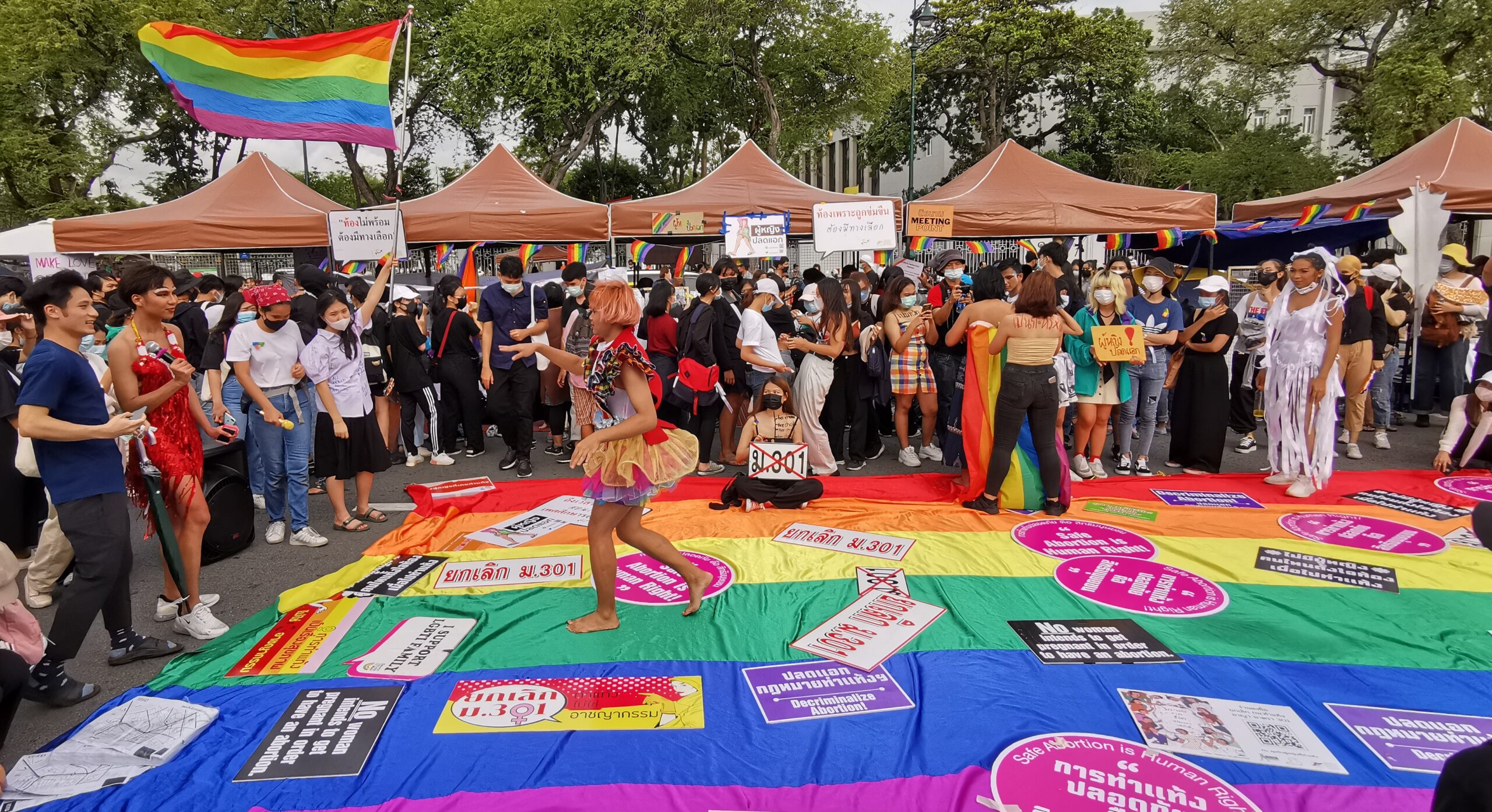
June is Pride Month! While heralding the onset of summer in Toronto, however, it remains winter in many jurisdictions around the world. In the spirit of Pride, it is vital that we join both in the celebration of many victories, and in solidarity to counter ongoing hatred and exclusion of 2SLGBTQIA+ people around the world.
Globally, 2SLGBTQIA+ people continue to experience denial of employment, education, equal marriage, and healthcare; more broadly, 2SLGBTQIA+ people are attacked, harassed, arrested, tortured, raped, killed, and sentenced to death (Yogyakarta Principles, 2006; 2017). As of June 2025, 65 jurisdictions around the world criminalize same-sex consensual sexual activity. 12 jurisdictions either can or do impose the death penalty for same-sex intimacy. And in at least 26 countries, public order, vagrancy and other minor offences are used to harass, arrest and prosecute transgender people (humandignitytrust.org).
This year, in addition to Pride Month, June 18, 2025 marks the United Nations (UN) International Day for Countering Hate Speech. This juxtaposition, while potentially fortuitous, also serves as a marker for silence in the face of anti-LGBTQ+ hatred and intolerance. This UN proclamation defines hate speech as “communication that attacks or discriminates against individuals or groups based on identity factors like religion, ethnicity, or gender.” This definition does not include discrimination based on sexual or gender minority status.
Even under the global spotlight of Pride Month in 2025, the UN’s omission of 2SLGBTQIA+ people in reference to countering hate speech recalls the infamous phrase associated with Oscar Wilde’s fall from literary icon to prisoner in 1895—“the love that dares not speak its name”—which helped pave the way for the modern era of LGBTQ+ rights advocacy.
In the spirit of Pride, it is vital that we call out collusion—by the UN, governments, or civil society—in the erasure of sexual and gender minority communities. For hate is not only characterized by acts of commission, such as the use of explicit verbal epithets or referencing of less explicit but nonetheless stigmatizing tropes that denigrate sexually diverse and gender-diverse people.
Hate is also marked by acts of omission.
In fact, the UN’s own broader “Strategy and Plan of Action on Hate Speech” specifically indicates that silence is not an option, but rather “signals indifference to bigotry and intolerance.”
More significant than the UN’s erasure of 2SLGBTQIA+ people on the International Day for Countering Hate Speech is the status of sexual and gender minorities in the 15-year UN 2030 Agenda for Sustainable Development.
Strikingly, there is no explicit inclusion of LGBTQ+ communities in any of the 17 Sustainable Development Goals (SDGs), 169 Targets, or related indicators of the UN’s otherwise ambitious SDG Agenda.
Direct and transparent mentions of 2SLGBTQIA+ people were, in fact, excised from the final text of the UN SDGs in an apparent effort to appease conservative and anti-LGBTQ+ states.
What remains, the UN’s stated principle “Leave No One Behind” (LNOB)”, proffers ambiguous language that at best dilutes LGBTQ+ rights, in effect leaving these rights at the discretion of individual states—including the over 65 jurisdictions that criminalize same-sex intimacy. Paradoxically, LNOB risks just that: leaving 2SLGBTQIA+ people behind in the global pursuit of sustainable development.
In contrast to the UN’s broader compromising of LGBTQ+ rights in the SDGs, several UN agencies have taken up the mantle to launch complementary efforts to advance LGBTIQ+ inclusion. The World Bank and United Nations Development Program have commissioned and supported the initial development of a global index to measure the inclusion of LGBTIQ+ people (Badgett & Sell, 2019). This report calls attention to a dire lack of data and evidence on LGBTIQ+ inclusion in many jurisdictions around the globe—though such evidence is vital to advancing LGBTIQ+ inclusion.
It is in this context that our SSHRC Partnership, “Mobilizing for a Research Revolution to Ensure LGBTIQ Inclusion in Asia” (MFARR-Asia), is collaborating with academic and community partners in seven Asian jurisdictions to collect evidence on the status of laws, policies, and the lived experiences of diverse LGBTIQ+ populations in six domains of life: education, family, economic well-being, health, political and civic participation, and personal security and violence (Newman et al., 2021; Wong et al., 2025).
Overall, MFARR’s efforts reinforce the power of collective, transdisciplinary research and community engagement to transform and accelerate LGBTIQ+ inclusion and human rights, and counter the stigma and barriers still faced in the academy and in the community. We aspire to nothing less than the full inclusion of diverse 2SLGBTQIA+ people in society as a precious and integral part of life.

